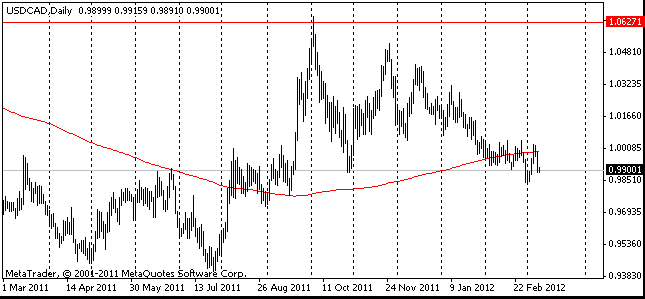EUR/usd
The single currency feels quite well at the beginning of the week. With the yen and pound being sold, the euro remains the single alternative to the dollar. Again the euro is purchased when the US dollar is quite strong. The major risk for the single currency is posed by elections of the top leadership in the southern countries. The first results of the parliamentary elections in Italy will come today after all polling stations are closed at 2 pm (GMT). Different surveys offer different outcomes: some speak about the narrow win of Pierluigi Bersani's democratic party, others think that the coalition government will be formed by Silvio Berlusconi's center-right party and Beppe Grillo's 5-Star Movement. Berlusconi's return to the political arena will hardly be favoured by the markets. Especially, if the triumphant speech of the supposed coalition points at the departure from the austerity plan. Thus, the current situation enables the euro to grow against most of its rivals, including the US dollar, however at the end of the week it may change and the single currency may come under harder pressure. Besides, you shouldn't forget about the presidential elections in Cyprus, which took place on Sunday. Now the negotiations about Cyprus's bailout should either move forward or get stuck once and for all.

GBP/USD
Bad news has become a trademark of Britain and the sterling's decline goes along with it. On Friday we learnt that Moody's deprived the country of the highest credit rating. It was another nail in the coffin of the British currency. The swift decline at the end of the last trading week and opening with a gap down this week have driven gbpusd to 1.5070, which is the 2 ⅟2- year low. There is a risk that from this unknown zone the sterling may continue to fall on triggering stop-orders. The pound is declining with the same vigour as the yen and comes second in the race for the title “The worst” after its Japanese vis-a-vis. It depreciated by 8% against the dollar since the beginning of the year and by 10% against the euro since the first decade of November.

USD/JPY
The yen's depreciation against the dollar since the beginning of the year makes 10%, however the current trend, which started in October, has pushed usdjpy up by over 20%. As we could notice, bigger shifts in the exchange rate for less than a year are quite rare, plus politicians seek to keep the markets within the range of these 20%. This week the new impulse to sell the yen was caused by rumours that the post of the BOJ's head will be taken up by Haruhiko Kuroda, a strong advocate of the aggressive quantitative easing. On opening USDJPY rose to 94.50, falling short of the 2010 high at 94.98.

USD/CAD
The unexpected downfall of retail sales in Canada combined with poor inflation data have provoked selling of the Loonie. The general decrease in the retail sales made 2.1% in December – the biggest decline since April 2010. The core index, with car sales excluded, dropped by 9%. The annual pace of consumer-price inflation totals modest 0.5%. The initial strength of the economy, which was seen immediately after the crisis, has turned out to be a real standstill, not much better than in Britain.
